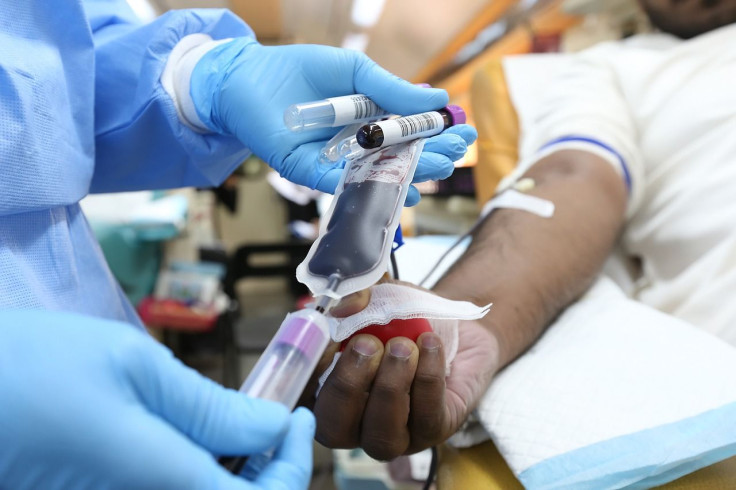Medical Experts Call For More Data After FDA Approval Of Convalescent Plasma

The FDA gave emergency use approval to convalescent plasma to treat the coronavirus on Sunday, but some medical experts are skeptical of the data that was released to support the use of the treatment.
One medical professional, Dr. Johnathan Reiner, a professor of medicine at George Washington University, told CNN that there isn’t enough data to understand the effectiveness of convalescent plasma.
"We don't know compared to a placebo whether convalescent plasma is effective but we have recent data that suggests that people who receive convalescent plasma early, or earlier do better than those that get it later,” Reiner said. “And there is some data from this. This is the best data that we have and the best data that we have seems to suggest that it's safe. But as recently as four days ago, the FDA stated on their website that it has not been proven that this therapy is both safe and effective."
Others such as Dr. C. Michael Gibson, a Harvard professor and doctor at Beth Israel Deaconess Medical Center told WFXT, a FOX affiliate out of Boston, that the treatment might be effective but not enough is known about the use of convalescent plasma.
“There are no randomized trials that are big enough to tell us whether it’s safe and effective,” Gibson said. “There is one study of 100 patients that was randomized. That’s not big enough to give us an answer.”
The Trump administration cited a federally funded Mayo study that showed evidence of a 35% improvement rate for those individuals that were given high doses of convalescent plasma early on in their illness compared to those that were treated later.
The study had over 100,000 American participants and is supported by the FDA, MIT, Harvard, and Mount Sinai hospitals, President Donald Trump said during a press briefing on Sunday.
But the data does not show randomized testing, which typically demonstrates whether one treatment works better than no treatment at all. Gibson went on to tell WFXT that until randomized trials are performed, the public should be skeptical of convalescent plasma treatment for the coronavirus.
“The first thing that came to my mind is how tragic it is that we gave 60-some thousand patients this therapy without randomizing them to the therapy or placebo,” Gibson said. “It could have just worked because the people who got the plasma were healthier. Maybe the people who didn’t get the plasma were critically ill and about to die. So unless you randomly assign people to plasma or no plasma, you don’t know the answer.”
Dr. Thomas File, president of the Infectious Diseases Society of America, also highlighted the need for randomized testing by telling CNN: "While the data to date show some positive signals that convalescent plasma can be helpful in treating individuals with COVID-19, especially if given early in the trajectory of disease, we lack the randomized controlled trial data we need to better understand its utility in COVID-19 treatment.
“For this reason, IDSA supports the continued collection of data in randomized clinical trials to better understand the benefits of convalescent plasma treatment before authorizing its wider use in patients with COVID-19."
On Sunday, President Trump and Alex Azar, secretary for the U.S. Department of Health and Human Services, encouraged people who have survived the coronavirus to donate plasma.
“On the therapeutics front, this is what I’ve been looking to do for a long time,” Trump said during a press briefing on Sunday. “This is a great thing. Today, I’m pleased to make a truly historic announcement in our battle against the China virus that will save countless lives.
“The FDA has issued an emergency use authorization — and that’s such a powerful term: emergency use authorization — for a treatment known as convalescent plasma. This is a powerful therapy that transfuses very, very strong antibodies from the blood of recovered patients to help treat patients battling a current infection. It’s had an incredible rate of success,” he added.
The U.S. has reported over 5.7 million positive cases of the coronavirus, with over 176,000 COVID-19 deaths, according to Johns Hopkins University.
© Copyright IBTimes 2025. All rights reserved.





















